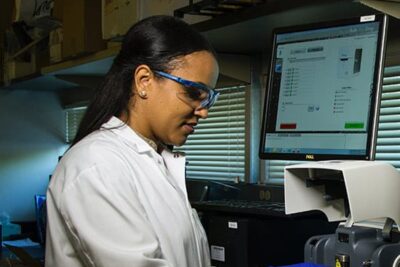Building the “FirstGen Presidential Fellows” program at Bentley University
Jane De León Griffin
Associate Dean of Arts and Sciences, Bentley University
The views and opinions expressed are those of the author and do not necessarily represent the views or opinions of EAB.
With the demographic shifts facing higher education, as well as the national reckoning with systemic racism, many institutions are looking for ways to attract, retain and better support students from under-represented groups. A major part of this effort includes abandoning the deficit mindset with which so many colleges and universities-especially elite private schools-have historically approached educating non-white students from low-income communities.
Bentley University understands these challenges first-hand. As an expensive private university with a niche focused on business, Bentley has always been a predominantly White and male institution. We are also located in the Northeast-a region that will be especially hard hit by the decrease of college-age students in coming years.
In response to these factors, Bentley has launched the “FirstGen Presidential Fellows” (FPF) program for first-generation students from under-represented groups. I was named the faculty director of this new initiative and charged with building it into a four-year academic program.
In addition to trying to address the university’s enrollment hurdles and DEI goals, I also needed to design a program that did not overburden faculty and students with additional requirements or obligations. One final challenge I faced was that most support programs for first-gen students are housed in student affairs, whereas our program was to have an academic focus that moved away from the deficit mindset approach.
One important lesson I learned from the EAB fellowship that I have applied to our design of the FPF program is to build on your institution’s existing strengths when designing new academic programs. We have done this in FPF by creating iterative academic experiences that work to answer a very Bentley question: how can businesses, organizations and/or individuals be a force for positive change in the world?
This question speaks directly to Bentley’s motto, “Be a Force,” and to our mission to change the world with a transformative business education, integrated with arts and sciences, that inspires and prepares ethical leaders. These iterative academic experiences-which include a course FPF students take together with their cohort, applied-learning experiences and a capstone project-move away from a deficit mindset by attempting to build on first-gen students’ existing epistemologies and life experiences and connecting their academic studies to relevant community issues and world problems.
We have also attempted to build on Bentley’s existing strengths by partnering with two of Bentley’s most successful centers, the Pulsifer Career Development Center and the Bentley Service-Learning and Civic Engagement Center (BSLCE). Fellows in this program participate in a customize-designed course offered through the Pulsifer Career Development Center, which helps them strategically approach how to make the most of their college career and professional training in order to live a fulfilling and happy life. We have also borrowed the BSLCE’s highly successful “students-as-colleagues” educational model, which allows students to gain leadership experience by inviting them to run parts of the program themselves.
The following modules of the EAB Rising Higher Education Leaders Fellowship were especially helpful to me on this project: Academic Program Innovation, Unconscious Bias & Hallmarks of an Anti-Racist Institution, and Student Success. I also relied on resources provided by the Center for First-Gen Student Success (NASPA and the Suder Foundation) and my two capstone partners, Kristin Landis-Piwowar and Andrés Matías-Ortiz.
More Blogs

Enhancing a sense of belonging in the classroom

5 higher ed thought leaders we are following
